February 5, 2025 | 16:47 GMT +7
February 5, 2025 | 16:47 GMT +7
Hotline: 0913.378.918
February 5, 2025 | 16:47 GMT +7
Hotline: 0913.378.918
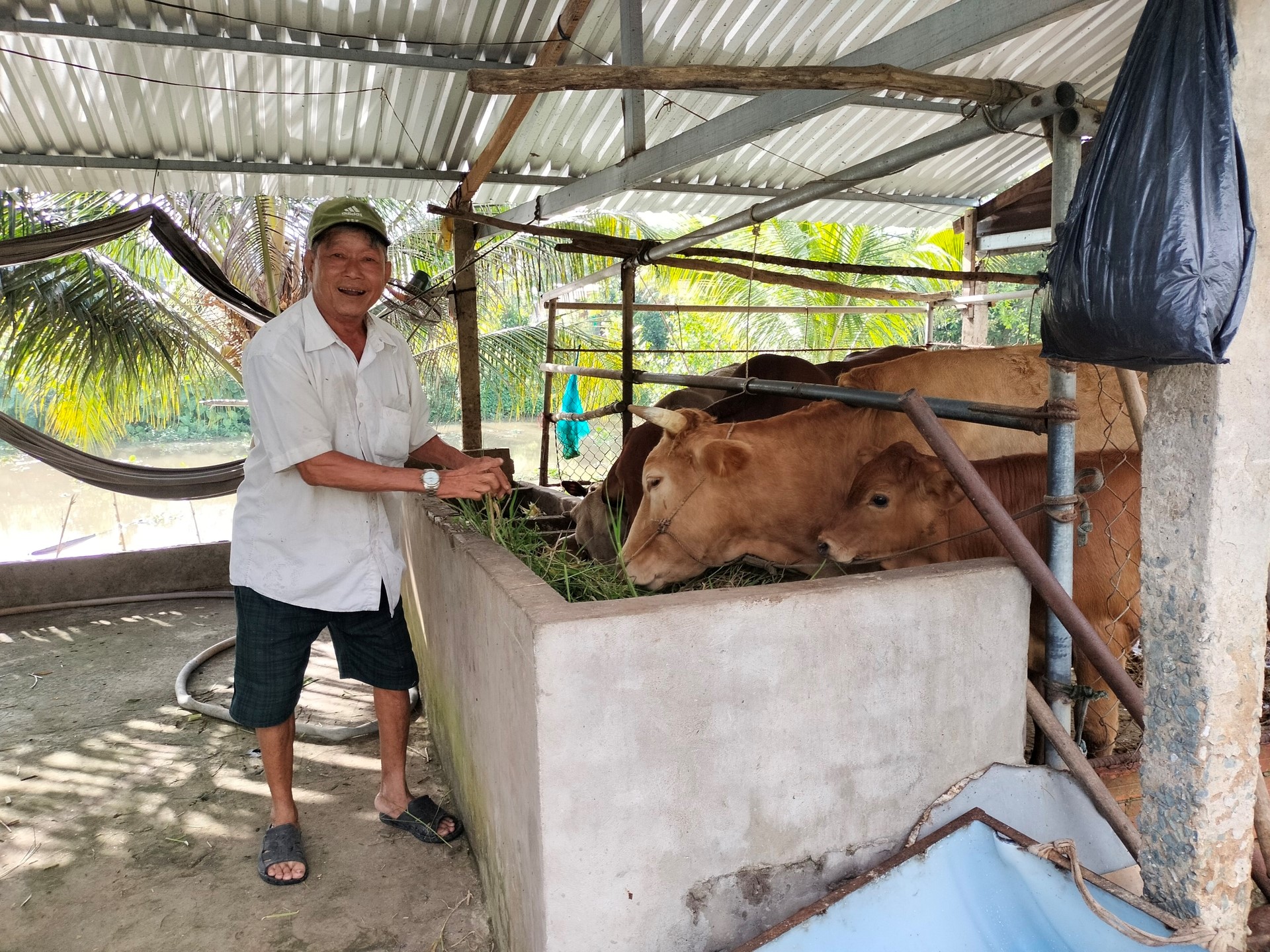
Breeders need to be vigilant against the reappearance of lumpy skin disease. Photo: Minh Dam.
After a long period of good control of lumpy skin disease on buffaloes and cows, recently in the Mekong Delta, this disease is showing signs of reappearing.
Ben Tre province is the locality with a large herd of cattle and poultry in the Mekong Delta, of which the cow herd reaches about 420,000 heads. According to the Ben Tre Sub-Department of Animal Husbandry and Veterinary Medicine, in general, the situation of diseases in livestock is being controlled quite well. Particularly for lumpy skin disease, the branch has just received a report on 1 case of infected cows in Thanh Phu district.
In Tien Giang province, in July 2023, the Provincial Sub-Department of Animal Husbandry and Veterinary Medicine recorded 1 case of cows infected with lumpy skin disease in Thanh Phu commune, Chau Thanh district, in which 2 cows out of a total herd of 4 cows were infected.
Since December 14, 2022, Tien Giang province has recorded cases of cows infected with lumpy skin disease in 4 households in 3 districts, with 6 infected cows out of the total herd of 16 cows. Cases of disease infection are due to not being vaccinated.
All disease outbreaks were detected early by specialized agencies and handled quickly, so they did not spread to a large area. However, according to the judgment of the specialized branch, from now until the end of the year, there are many rains and storms, so the risk of developing lumpy skin disease in buffaloes and cows is very high.
Currently, in order to prevent lumpy skin disease, breeders need to focus on having their livestock fully and timely vaccinated. Each dose of vaccine against lumpy skin disease has a duration of immunity, protecting livestock for at least 12 months.
There are many suppliers of vaccines against lumpy skin disease on the market. Depending on the supplier, the price of the vaccine fluctuates around VND 35,000/dose.
Currently, the total herd of cows in Tien Giang province reaches about 124,000 heads. At this time, breeders begin to prepare for the peak season of meat and milk production to serve consumer demand, which is expected to increase highly during the holidays and Tet in 2024.
The local authorities in Tien Giang are coordinating with the veterinary medicine of districts, towns, and cities to recount the number of unvaccinated cows and the number of cows that are subject to routine vaccination. This aims to remind owners to quickly have their cows vaccinated. The most appropriate and thorough vaccine is the Turkish Lumpyvac vaccine, distributed by Amavet Veterinary Medicine Business JSC.
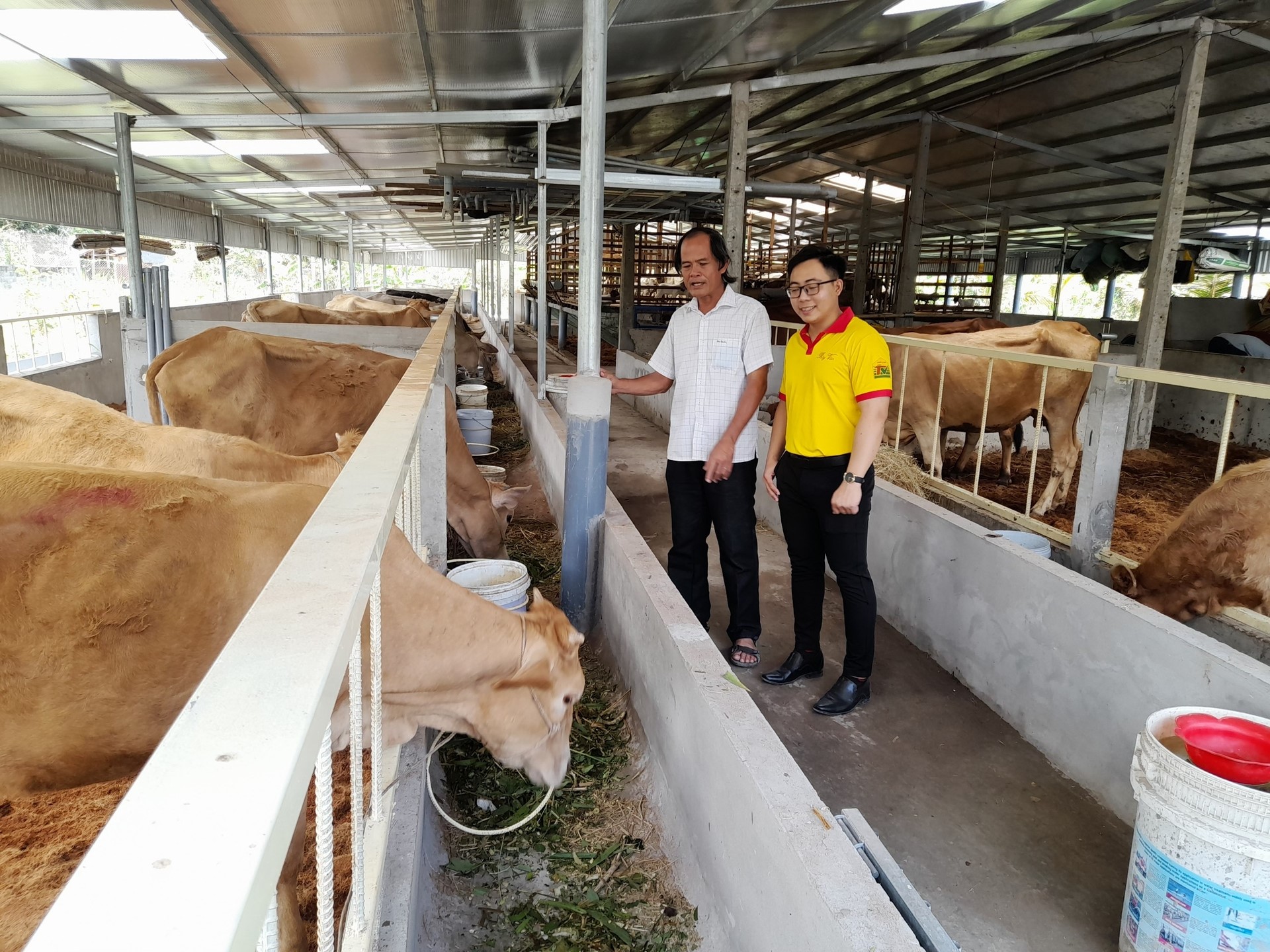
It is recommended for breeders to focus on biosafety to prevent and control diseases. Photo: Huu Duc.
Regarding the policy of vaccination against lumpy skin disease, Ms. Le Thi Hong Nho, working at the Tien Giang Sub-Department of Animal Husbandry and Veterinary Medicine, said that due to the stable disease situation and not being in the anti-epidemic period, the province does not yet have a policy of free vaccination. Breeders need to actively have their livestock herd vaccinated.
Similarly, Mr. Tran Quang Thai, Director of the Ben Tre Sub-Department of Animal Husbandry and Veterinary Medicine, said that for the vaccine against lumpy skin disease, the province does not have a policy of free vaccination because it is not in the anti-epidemic period.
Particularly in Vinh Long province, in order to proactively prevent and control diseases for cattle and poultry, in 2023, the province deployed four free vaccinations: lumpy skin and foot-and-mouth diseases in cows, duck flu, and rabies in dogs. People are free of charge for vaccines and only need to support the grassroots veterinary vaccination force for VND 5,000–10,000/dose.
In addition to vaccination, specialized agencies also recommend that farmers pay attention to caring for the livestock herd, cleaning cages, spreading fly and mosquito nets, and especially implementing biosafety measures for the most effective disease prevention and control.
Lumpy skin disease is a viral infection in cattle. Originally found in Africa, it has also spread to countries in the Middle East, Asia, and eastern Europe. Clinical signs include fever, lacrimation, hypersalivation, and characteristic skin eruptions. Diagnosis is by histopathology, virus isolation, or PCR. Attenuated vaccines may help control outbreaks.
Translated by Huyen Vu Thu

(VAN) Scientists have found that insect frass–a blend of excreta, feed, and molted skins – is far from a mere waste product. Instead, it could play a key role in advancing greener, more sustainable agriculture.

(VAN) US president says he will hit Canada, Mexico, China and EU with levies as he targets major trading partners.
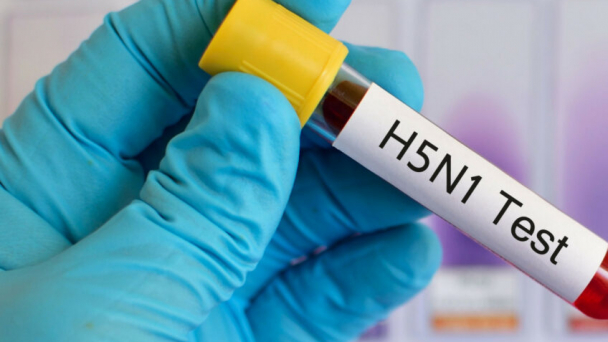
(VAN) A research study of bird flu viruses in cattle has shown that the H5N1 strain does not pose an increased threat to humans.

(VAN) In two actions, migrant workers claim exploitation while farmers demonstrate against inheritance tax plan.
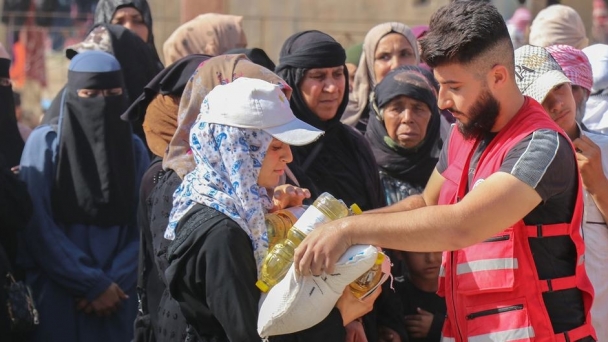
(VAN) From FAO Regional Office for Near East and North Africa.

(VAN) President of the Czech Republic Petr Pavel affirmed his support for the EC to consider lifting the IUU 'yellow card' on Vietnam's seafood exports.
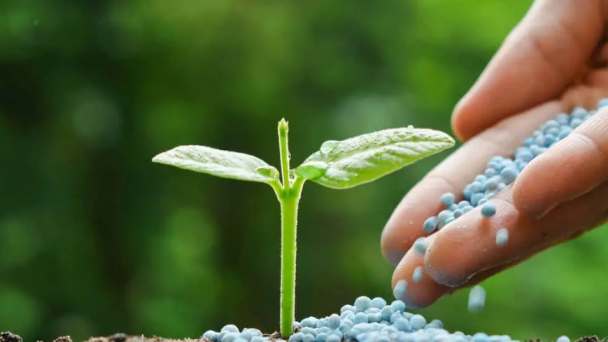
(VAN) Discover how a genetic mutation in plants enhances partnerships with soil microbes, reducing fertilizer use and boosting sustainable farming practices.